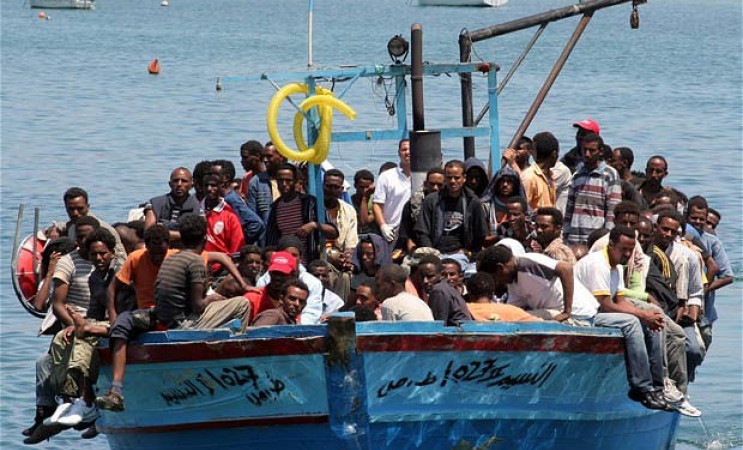Tales of Darkness: Europe’s Refugee Woes

“While Europe is squabbling, people are dying.”
Alexander Betts, New York Times, Aug 29, 2015.
It is the talk on European lips, the noisy attention commandeered on the media stands. Dead refugees; desperation about those fleeing and fears about those coming. There are suffocations in trucks; there are continued drownings, some 2,500 having perished in the Mediterranean this year alone.
The German Chancellor, Angela Merkel, has made it clear that European interior ministers ought to look into “rapid changes to the asylum system”.
The front is far from united, a curious thing, given the EU tendency towards heavy desk-inspired bureaucratisation. There may well be standards about sausage content, regulations on spirit content, and the size of apples, but when it comes to assessing asylum seekers, countries of origin in terms of conflict, and processing, no set standard can be spoken of. The closest is the Common European Asylum system, but this remains a phantom assortment of rules that do not generally get implemented.
From without, Europe is being seemingly withered by a human flow it should be able to better manage. There is much in the way of buck passing, largely by states who simply do not have the bucks to begin with. Countries operate in open defiance of the Dublin Regulation, which states that responsibility for examining an asylum seeker’s claim lies with the first EU country the migrant reaches.
The result is one of often indiscriminate passage: the status of refugees is less relevant than making sure that the individuals in question are passed through to their next port of call. The assessment is significant in so far as genuine asylum cases are not deemed of equal standing to those who flee for purely economic reasons. In truth, the distinction is not always easy to make. Poverty and war tend to keep dire company.
This puts destination countries, often the richer ones, in a pickle. Germany has shown itself to be open to great numbers of asylum seekers (800,000 refugees are anticipated this year), but the will of the electorate is waning on that score. There is much finger pointing – some countries are deemed to be shirking their obligations. Countries such as Denmark, who have previously had generous intakes, are proving glacial over the issue. Nationalist politics is biting.
Other states are proving to be even eccentric in their responses to the problem. The Slovakians are playing a different game, one well worn from the history of selectiveness. Only desperate Christians will be admitted in the refugee mix – government officials are, after all, not interested in mosques, or what such creations entails. “We could take 800 Muslims,” noted Interior ministry spokesman Ivan Netik, “but we don’t have any mosques in Slovakia so how can Muslims be integrated if they are not going to like it here?”[1]
Hungary has made it clear where it stands, unilaterally taking the measure to hole off its border with Serbia. At present, construction of a 110 mile fence continues unabated. Police have been deployed just to make sure there are no strays.
Just to add another dimension to the situation, EU foreign and defence ministers are considering deploying the military against vessels used by people smugglers to transport their human cargo. Again, the human cargo is seen to be as threatening as the people who smuggle it. Asylum, in other words, cannot be facilitated with such “business models”.
“I think we should try… to come to some agreement with [the Libyan authorities] so that we can send boats back into a harbour, and have some way of disabling them, or disable them at sea and send the people back to shore,” suggested Admiral Lord West, former head of the UK’s Royal Navy.
Across Europe, the issue is less what refugee statuses matter, than what religion they possess. This is the Jewish refugee replay from the 1930s – limiting intake on the basis of allowing proper refugees. Suffering is not the criteria; identity is. Behind every sympathetic admission is a resentful counter.
All in all, conflation of categories is the ultimate problem. Migrants and asylum seekers are deemed the same thing. Refugee protocols are left on the back burner. Even news reports do not make the distinction. Tens of thousands of people are on the move like an unstoppable mass.
Generally speaking, when it comes to the specifics of asylum seekers, EU member states are not reaching their targets. And when it comes to funding rescue operations, EU states are simply not pulling their weight. While there was a tripling of EU funding to the tune of 120 million in April, it does not come close to the Mare Nostrum mission which was abandoned by Italy after states such as the UK claimed it unsustainable.
While Europe festers in disagreement, the numbers of the desperate, and the dead, continue to grow. As do the vocal populists, who fear a loss of living standards and the assertiveness of Islam. The mess is getting more entangled, and promises to get worse before it gets better.
Dr. Binoy Kampmark was a Commonwealth Scholar at Selwyn College, Cambridge. He lectures at RMIT University, Melbourne. Email: [email protected]
Notes
[1] http://www.bbc.com/news/world-europe-33986738


